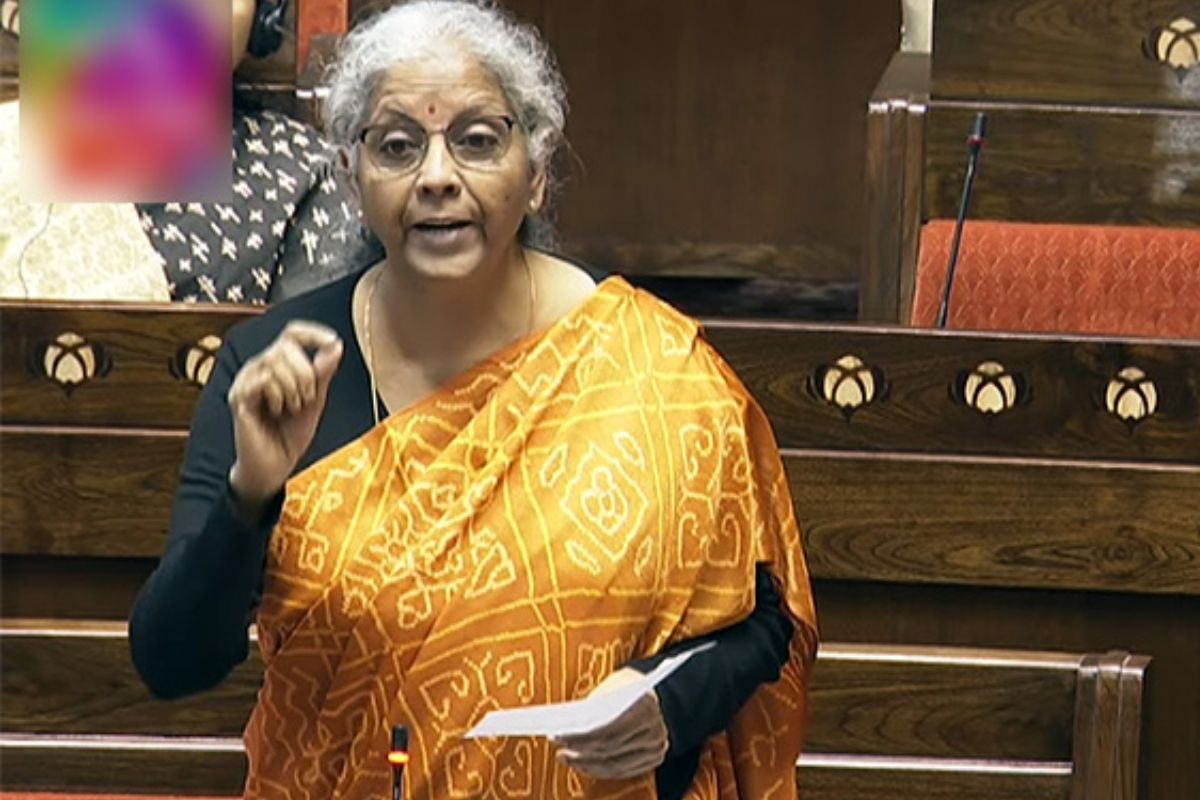FM hands over keys to homebuyers under SWAMIH Fund in Mumbai
Finance Minister Nirmala Sitharaman on Monday handed over keys to homebuyers from select projects in Mumbai Metropolitan Region (MMR).
Answering supplementary questions, she said those enthusiastic about knowing the state of the banks’ NPAs, should know the heart of the problem was the ‘phone-banking’ carried on for 10 years in the UPA rule

Union Finance Minister Nirmala Sitharaman
Finance Minister Nirmala Sitharaman on Tuesday informed the Rajya Sabha that steps taken by the Narandra Modi Government had brought down NPAs and the banks were making profit now, and the Indian economy had become the fastest growing economy, growing at the rate of 7.6 per cent in the last quarter.
Answering supplementary questions, she said those enthusiastic about knowing the state of the banks’ NPAs, should know the heart of the problem was the ‘phone-banking’ carried on for 10 years in the UPA rule, under which banks were asked on phones to give loans to people, without caring for their creditworthiness.
Advertisement
When Chairman Jagdeep Dhankhar inquired about the expression phone-banking used by Minister of State for Finance Bhagwat Kishanrao Karad, Ms Sitharaman said phone banking was the practice carried on during the UPA rule which contributed to the NPAs problem.
Advertisement
“There was political interference through phone-banking and this spoilt the health of Indian banks and drove them to loss-making and twin balance sheets situation. This also made the Indian economy a fragile economy,” she said.
The burden fell on the Modi Government to sort this out, she said. Her predecessor Finance Minister Arun Jaitley worked hard to identify the problem. The Prime Minister sat with the ministers to deal with it, she said.
The finance minister said NPAs gross and NPAs net are coming down. The numbers are available year-wise. The NPAs are coming down in India while banks are in distress in the US and Germany and they are going bust in the US and Switzerland. Not only NPAs are coming down but banks’ profits are going up in India, she said.
The net NPA ratio in 2017-2018 for scheduled commercial banks (SCBs) was 5.94 per cent and for public sector banks 7.97 per cent and this came down next year to 3.65 per cent for SCBs and 4.80 per cent for public sector banks. In 2022-2023, it has come down to 0.95 per cent for SCBs and 1.24 per cent for public sector banks, as a result of the steps taken by the Government, Ms Sitharaman said.
Answering Mr Neeraj Dangi (Congress) who asked the original question, Mr Karad said there are several financial inclusion schemes to help people run their businesses and enhance their incomes, like MUDRA.
However, there are RBI instructions for not giving loans to wilful defaulters, some units are also denied fresh loans. The IBC is also there. Look-out circulars are also issued. Big loan information is also circulated, he said.
When Mr Dangi asked about action against guarantors, Mr Karad said the guarantors are responsible for equal liability in law. Even the Supreme Court ruled recently the guarantors are equally responsible.
Mr Binoy Viswam (CPI) asked about hair-cut in the case of corporate defaulters. Ms Sitharaman said the Government does not decide the hair-cut. There is a committee of creditors which decides that. The Government has no say in the matter.
Replying to Jawhar Sircar (Trinamul Congress), Mr Karad said writing off of loans is not waiving of loans. The unpaid loans had accumulated due to the “phone-banking” of the past.
Mr Jairam Ramesh (Congress) said that 2,623 individuals owe the banks, amounting to Rs 1.96 lakh crore. To this, Ms Sitharaman replied, “Action is being taken on wilful defaulters. My answers in the Lok Sabha are indicative of the banks taking steps towards getting the money from these people.”
“As of March 31, this year, legal suits were filed against 13,978 accounts. Action has been initiated in 11,483 SARFAESI cases. FIRs have been filed in 5,674 cases. An aggregate amount of Rs 33,801 crore has been recovered.”
“Around more than Rs 15,183 crore was returned to the banks from defaulters on whom PMLA action was taken. As of December 1, assets amounting to Rs 15,186.64 crore have been confiscated by the ED,” the Minister added. Specific action is being taken, she said.
Advertisement